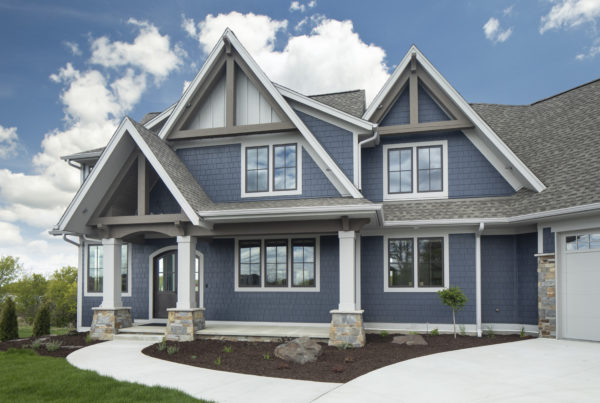Siding does more for your house than just boost its curb appeal. Siding has one main job, ensure your home is water tight and protecting your home from the elements. Vinyl siding has had a bad reputation in the past, but its quality has improved throughout the years. Today’s vinyl siding is fade resistant, insect proof, and extremely durable. There is also a wide range of colors and styles to choose from.
If your home has older and outdated vinyl siding (with the bad reputation), you may want to consider an upgrade. While vinyl siding has many positive attributes and looks great, there are a few major problems you should be aware of before siding your home.
Warping and Buckling
Warped vinyl siding is a result of bad and improper installation. Vinyl siding must be hung to allow room for it to expand and contract from hot and cold weather. It also must be fastened in a way to allow movement. If fastened too tight, vinyl siding will expand with no place to go causing it to warp or buckle. This is one of the main reasons vinyl siding is not used in really hot or cold climates.

Moisture
Since vinyl is designed to be flexible allowing it to expand and contract, it isn’t sealed tight to keep out water. A waterproof barrier is installed underneath to help prevent moisture. If moisture manages to get through this barrier, it is trapped with no place to go, you may not know until it is too late since the siding itself is unaffected.

Fading
The sunlight will cause your vinyl to fade over time and sides of your home get more sun than others. This can lead to uneven fading and discoloration in some places and normal color in others giving an unattractive look. Fading is more of a cosmetic issue, however, the sun has a great impact on your siding and could lead to cracking if not replaced.
Cracking
All physical objects can hit and damage vinyl siding, whether a falling tree branch or rocks hurled by a lawnmower causing cracks. Cracked vinyl siding needs to be repaired or replaced as soon as possible as this allows moisture build up leading to mold growth.
Noise
Siding shouldn’t make noise. Improperly installed vinyl siding will make irritating noises when windy or temperature changes as it expands and contracts. If your siding is too tight, you will hear cracking or popping sounds. If your siding was installed too loose, you will hear a rattling noise. Loose vinyl siding should be replaced immediately.
Damage
Vinyl siding can be dented somewhat easily by hail, rocks, and any flying objects (weather related or non weather related). Dents and chips can make your home look old and unflattering. If your vinyl siding has collected years of damage and looks unsightly, it may be time for an inspection and replacement.








